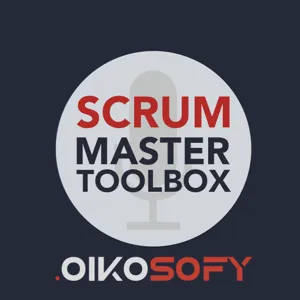Value Over Velocity, A Product Owner’s Journey to Value-Driven Development, NoEstimates Unplugged Week | Maryse Meinen

Maryse Meinen: Value Over Velocity, A Product Owner’s Journey to Value-Driven Development, NoEstimates Unplugged Week
This is one of a series of episodes where Product Owners explain how they used, and benefited from #NoEstimates in their work with teams.
To know more about #NoEstimates, sign-up to get the first 3 chapters of the book here.
Introduction to #NoEstimates
Maryse Meinen shares her journey into agile and lean methodologies, highlighting a pivotal moment at her first international conference where she attended a workshop on #NoEstimates led by Seb Rose. The workshop's quiz on estimating the distance from Earth to the moon led her to an epiphany about the common tendency to provide estimates even when uncertain, driven by peer pressure—an insight that spurred her to experiment with the #NoEstimates approach.
A Real-World Example of Success
Maryse describes her experience with a new team tasked with developing an infrastructure solution without relying on traditional estimates. By focusing on conversations, card confirmations (the 3 C’s of User Stories), and refining story points to either 1 or 0 based on whether a story was refined, the team managed to prioritize work more effectively. The practice of making items as small as possible and focusing on delivering value in various forms proved to be beneficial.
Challenges in Implementation
The biggest challenge in implementing #NoEstimates was not from management or stakeholders, but rather from inexperienced scrum masters resistant to deviating from traditional estimation techniques. Maryse found success by allowing the team space to operate independently and focusing on outcomes rather than estimates.
Impact on Planning and Prioritization
Shifting the focus from estimates to value delivered led to a significant change in how Maryse's team approached planning and prioritization. By setting sprint goals around solving real problems for real people, the team moved away from a task-centric to a value-centric approach. One of the core tenants of the #NoEstimates approach.
Measuring Progress Without Estimates
Maryse's team measured progress by the problems they solve, framing sprint goals around these problems and communicating achievements in terms of value delivered to stakeholders, rather than in traditional estimation-driven progress metrics, like tasks completed - which would not necessarily deliver any value to end-users and customers.
Advice and Resources for #NoEstimates
Maryse encourages teams to start experimenting with #NoEstimates and emphasizes the importance of continuous learning and adaptation. She recommends engaging with the #NoEstimates community on Twitter and exploring resources by Allan Kelly and Seb Rose, as well as the NoEstimates book.
About Maryse Meinen
Maryse is an Product Owner dedicated to fostering experimentation, agility, and empathy within organizations. She builds and facilitates great teams, coaches leaders, and believes in simplicity and human-centric methodologies. With expertise in Lean/agile development and a passion for teaching, she shapes adaptive and learning-focused cultures.
You can link with Maryse Meinen on LinkedIn.